Designer Tabitha Organ combined natural materials with metal details to transform this London townhouse into a home with a “slightly futuristic” feel for a client who loves entertaining.
The five-storey property on St Pauls Road had recently been renovated by a developer using poor-quality finishes, so the client – a young tech entrepreneur and first-time homeowner – asked Organ’s studio Tabitha Isobel to create a more bespoke interior.
The brief called for a scheme that retains the Victorian house’s original features, whilst layering vintage pieces and contemporary design to create spaces with a distinct character.
“The client wanted a home that would be surprising and bold but also timeless,” Organ told Dezeen. “Amongst his peers, he is a frequent host of parties so he wanted an interior that would be a backdrop to these and bring a certain entertaining ‘vibe’.”
Some of the original details that survived the previous renovation included detailed mouldings and the wooden window shutters in the living areas.
Organ sought to emphasise these elements by introducing a carefully chosen palette of complementary colours and materials. Other spaces received a more expressive treatment, including the golden-toned cinema and DJ room in the basement.
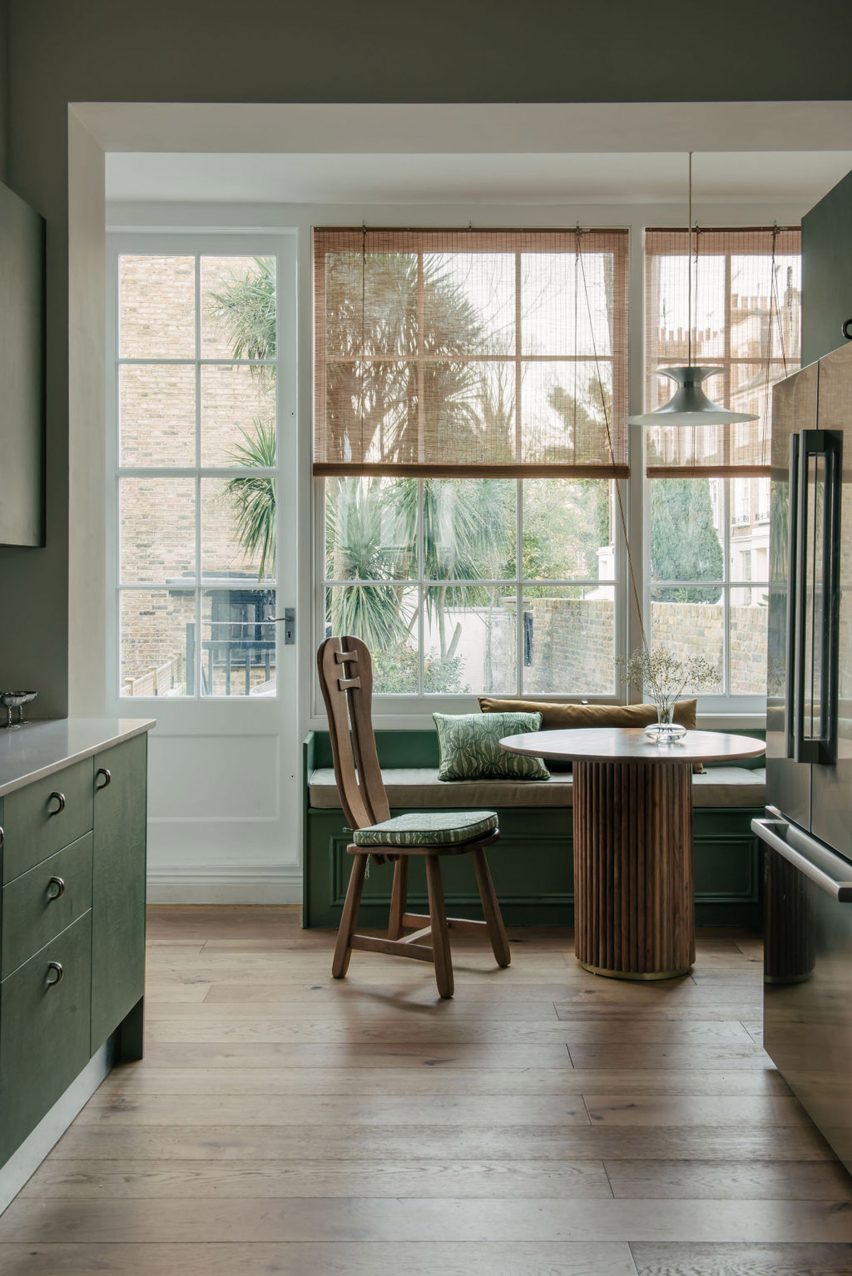
The main architectural interventions occurred on the first floor, where previously disjointed spaces were reorganised to create a large bedroom with an adjoining bathroom and dressing area.
The bedroom, which has windows on two sides due to the property’s end-of-terrace location, is connected to the bathroom by a walk-through wardrobe containing bespoke cabinetry built from naturally patterned burr walnut.
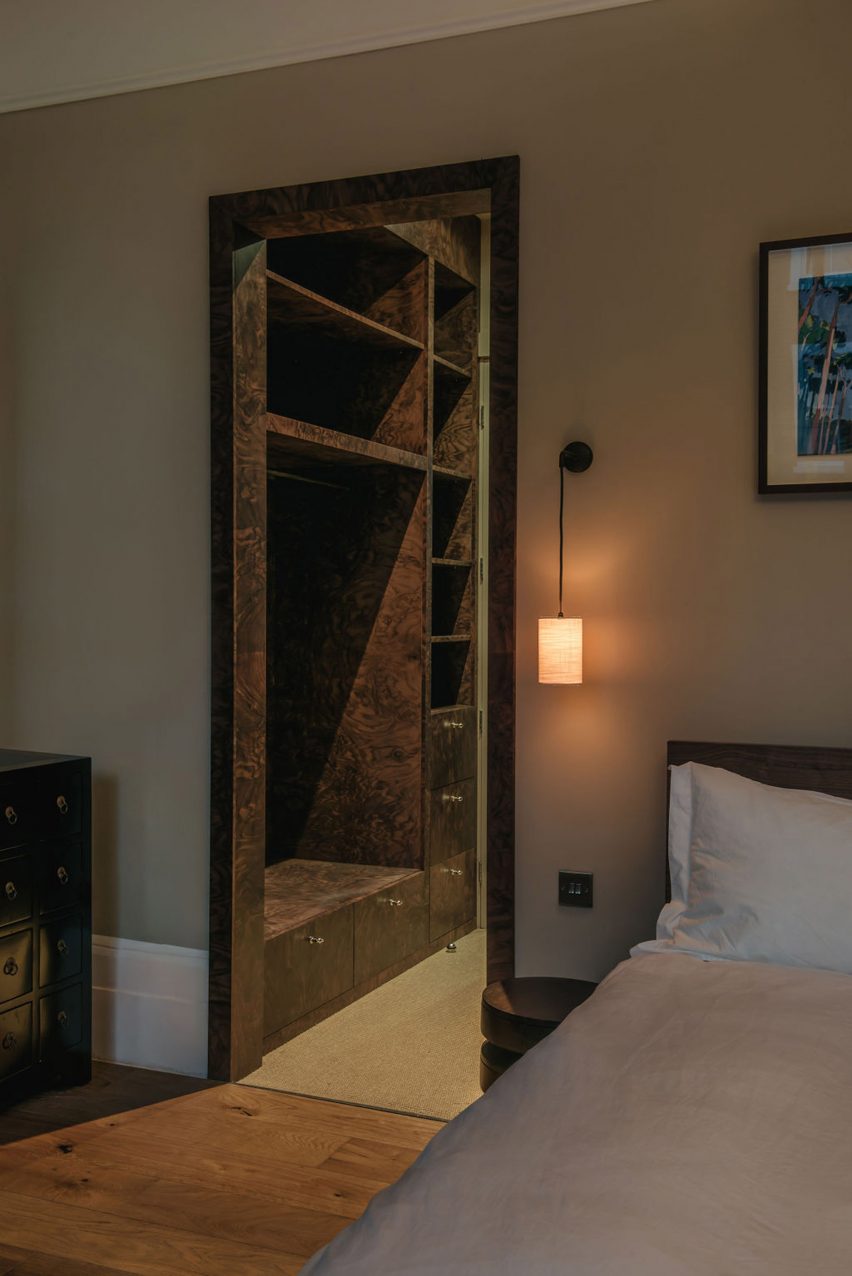
The house’s main living areas are unified by the consistent application of green hues and metal details, which featured in an image of a kitchen given to Organ by the client as inspiration at the beginning of the project.
“As the living and dining area is open plan with the kitchen, we introduced a Verde Guaco Green fireplace surround that sits on the same elevation as the kitchen so the tones speak to each other,” Organ explained.
“We also chose a green velvet sofa from Maison Dara that is positioned in line with the kitchen, helping the spaces to feel connected.”
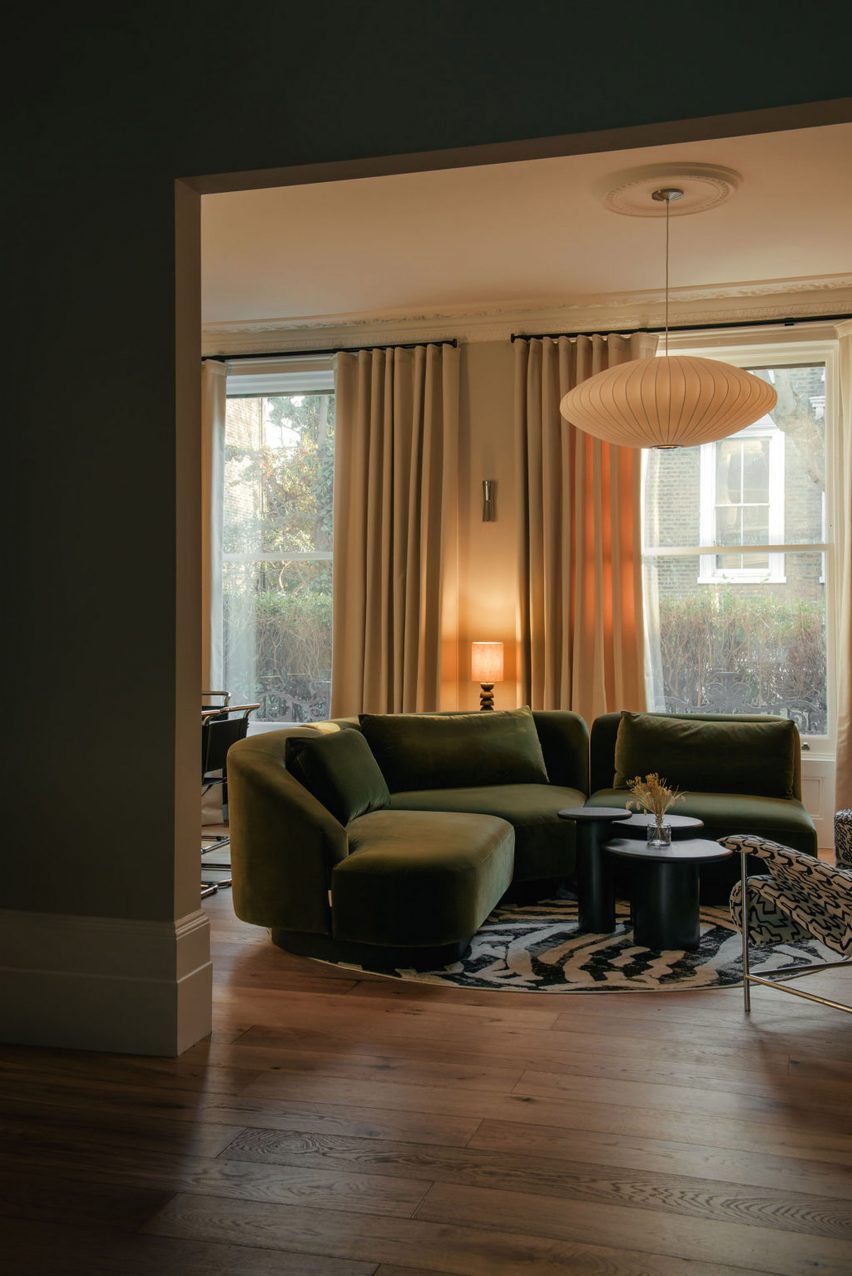
The designer added that the combination of natural materials and metal surfaces contributes to the scheme’s sense of timelessness while creating a juxtaposition of textures and finishes that adds visual interest to the design.
“As part of the concept, we wanted the spaces to have a slightly futuristic feel to them,” she pointed out. “Metals are timeless materials and I find they lift palettes, bringing them to life and creating a richness through reflection and depth.”
Metal and wood combine in a bespoke solution designed to conceal the television above the fireplace. Eight hand-carved wooden panels are set within a brushed aluminium frame that incorporates bi-fold doors that open to reveal the TV.
Throughout the home, textiles provide a further textural contrast to the hard metal surfaces. This approach is encapsulated by a vintage metal-framed armchair in the living room that was reupholstered in a boldly patterned fabric by UK brand Schumacher.
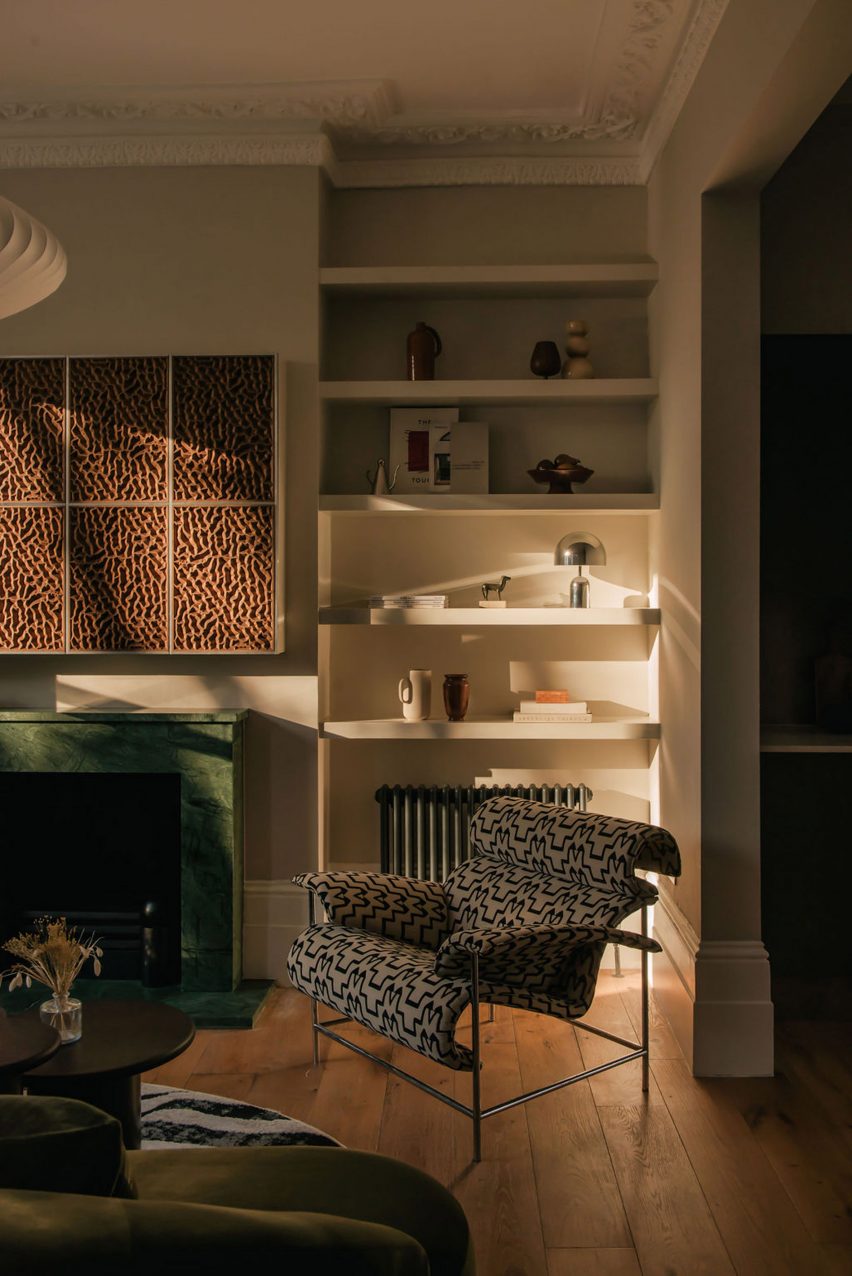
While the living area and bedroom are predominantly monochrome, there are moments of bright colour elsewhere in the home – particularly in the en-suite shower room.
Organ chose terracotta tiles with different scales to bring a sense of richness and warmth to the space. The walk-in shower is lined with cobalt blue tiles intended to introduce a surprising element.
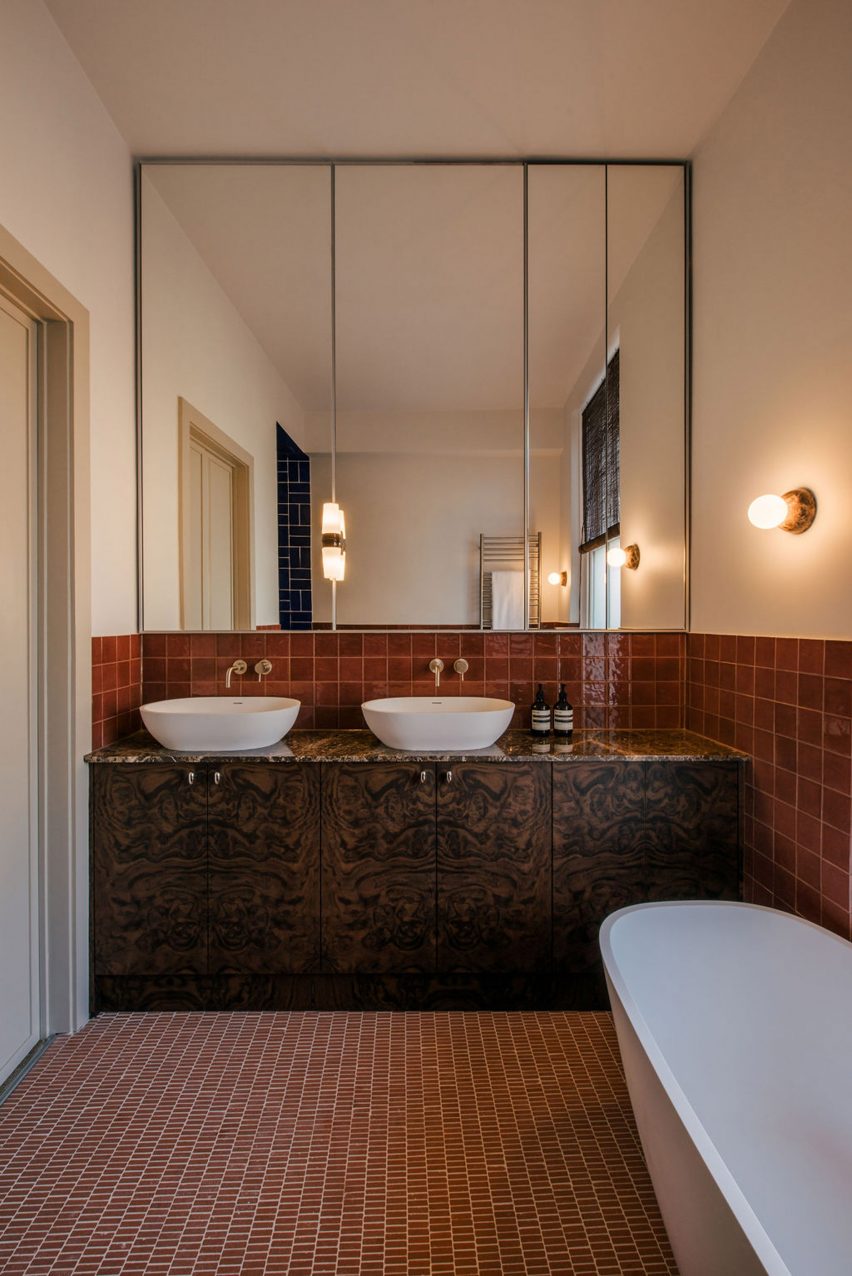
A cinema room located on the basement level was designed to resemble a moodily lit members’ club, with a cotton moire wall covering matched to a high-gloss painted ceiling and mid-gloss cabinetry.
The room is used for hosting parties and includes a concealed home bar with stainless steel shelves set in front of a bronze-tinted mirror.
Marble and metal wall lights illuminate the textured walls as well as a velvet sofa with oversized cushions, a vintage coffee table and a bespoke walnut DJ console crafted by furniture maker Spinback.
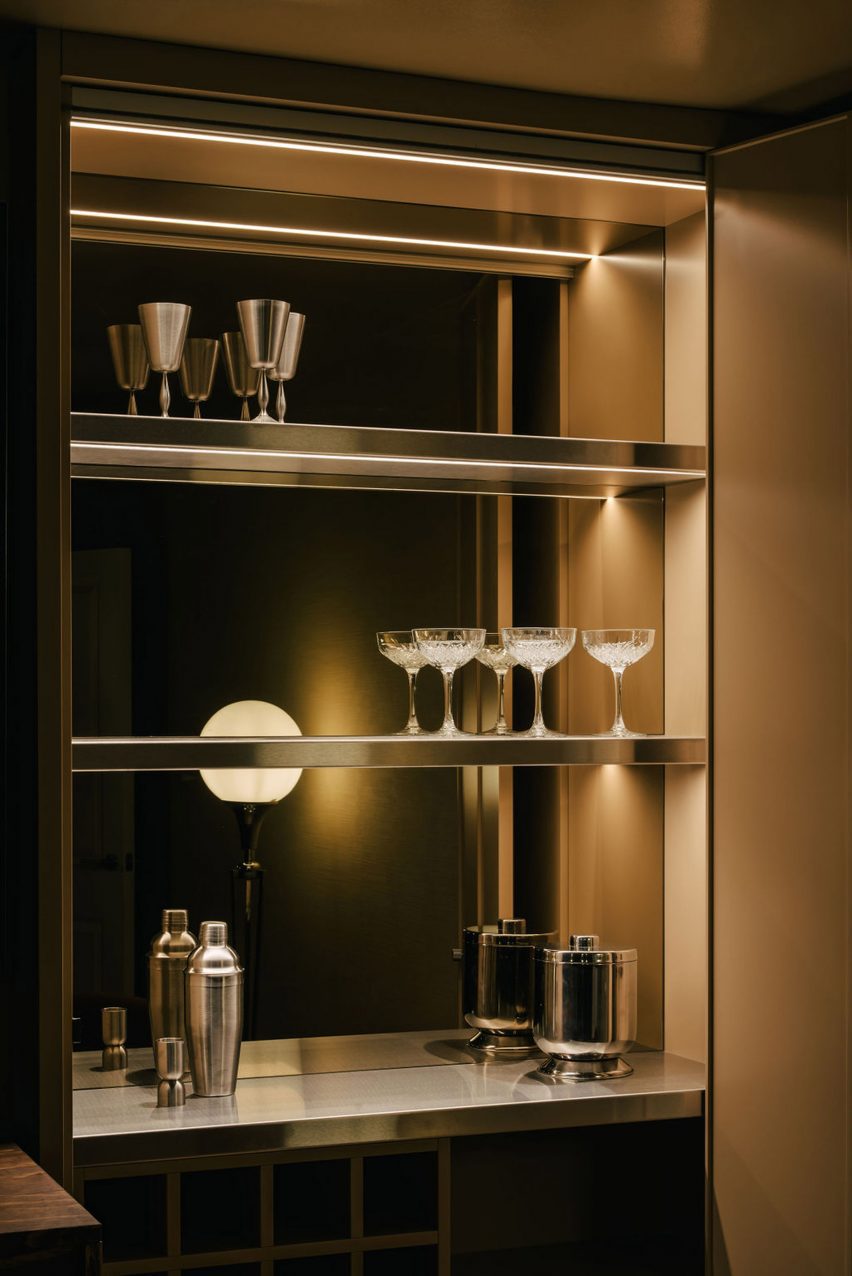
Organ founded Tabitha Isobel in 2023 after working for a decade as an interior designer for London-based studios Conran + Partners and Sella Concept.
The designer’s approach focuses on combining historical and contemporary elements to create timeless spaces driven by authenticity rather than trends.
Other creative townhouse transformations include a Brussels home with a skylit atrium and a London home that was given a 1970s-style makeover.
The photography is by Genevieve Lutkin.

